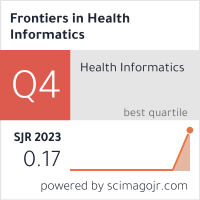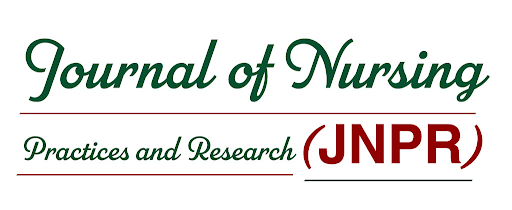Publication Opportunities
Publication Opportunities
“We are committed to assisting you through your journey in research publication”
At IFERP life science, We are extremely serious about issues pertaining to publishing ethics. Every article will undergo peer review by numerous subject-matter specialists since, in our opinion, the peer-review publication process is a crucial component of academia, and its integrity must be upheld at all costs. Peer review calls for professionals in the relevant sectors to provide their thoughts and suggestions for how to make the submissions better.
Indexing Database
3rd GNC-2025 proceedings series will be submitted to the Web of Science Book Citation Index (BkCI) and to SCOPUS for evaluation and indexing (T&C)*.
PEER-REVIEWED SCOPUS-INDEXED JOURNALS
Explore our selection of prestigious Scopus-Indexed Peer-Reviewed Journals, ensuring quality and reliability in research publications at the ICBBR.
Research Guidance
- Editing & Revision
- Formatting
- Review
Editing & Revision
- Grammatical Corrections
- Language Editing
- Plagiarism correction.
- Proofreading
- Research Paper Editing
- Case Report Editing
- Synopsis Editing
- Thesis Editing
Formatting
- Journal Format
- Research Paper Format
- Cover Letter
Review
- Reviewer suggestion
- Reviewer Comments Support
- Thesis Review
- Book Review
- Research Paper Review
Contact Us
Seeking assistance for your research publication journey? Our Publication Inquiry Support service is tailored to provide guidance and address your queries, aiding you in navigating the publication process with ease.
Major Steps involved in publishing a research paper:
- Format your manuscript according to the conference guidelines and template. You can download theFull manuscript Format and Abstract format
- Organize your paper effectively, covering the title, abstract, introduction, methodology, results, discussion, conclusion, and references.
- Use the conference's preferred citation style, ensuring your citations are correctly formatted.
- Use the conference's online submission system to submit your manuscript by the given deadline. Please follow this page to submit your Abstract
- Your manuscript will be reviewed by field experts, who will assess its quality, validity, and relevance.
- Take into account any feedback or revisions recommended by the reviewers and make the changes to your manuscript accordingly.
- Authors will receive notification of paper acceptance or rejection post the review process.
- If revisions are needed, kindly make the changes and resubmit your paper/abstract within the given timeframe.
- Authors of accepted papers must register by the specified deadline. Registration can be done by clicking here.
- Ensure that at least one author registers for the paper to be included in the conference proceedings.
- Authors may receive galley proofs of their papers for final evaluation after registering.
- Please make sure that you proofread your galley proof carefully for errors and make revisions.
- If you plan to give a presentation at the conference, make sure your slides and presentation materials adhere to the conference guidelines.
- Practice your presentation to ensure clarity and time management.
- Present your research during the assigned session at the conference.
- Engage with the audience and be prepared to answer questions.
- Your accepted and presented papers are included in the conference proceedings, which serve as a permanent record of the research that was shared.
- These proceedings are available in print and online, providing a lasting record of the excellent contributions made during the conference.
- We allow chosen papers to be considered for publication in affiliated journals.
- If interested, writers may submit an extended version of their conference paper for editorial review to the journal.
- You can take the opportunity at the conference to network with other scholars, professionals, and experts in the subject.
- Connect with possible peers, remain up to date on current trends and plan on projects together.
Ethics and Publication Malpractice
Ethics and publication practices are crucial aspects of the scholarly community to ensure the integrity, credibility, and reliability of research. For the 3rd Global Nursing Congress (GNC-2025); participants and authors are expected to adhere to ethical standards and avoid publication malpractices. Here are key principles
Ethical Guidelines
- Define authorship criteria clearly, making sure that persons who have made important contributions are recognized as authors.
- In the acknowledgement section, acknowledge the contributions of people who did not meet the criteria for authorship.
- Avoid plagiarism by correctly citing and referencing all study sources.
- Use plagiarism detection tools to check plagiarism and make sure that the manuscript is unique.
- Ensure that research data is accurate and complete.
- Present and describe the data collecting and analysis methodologies clearly
- Obtain informed permission from human subjects participating in the study, ensuring that they understand the goal, risks, and benefits of your study.
- Be transparent about any financial or personal connections that could influence the research or its understanding.
- Address potential conflicts of interest openly.
- Conduct research in compliance with ethical principles and standards.
- Obtain approval from institutional review boards for human subjects studies.
Publication Malpractice Prevention:
- Avoid submitting the same work to multiple conferences or publications at the same time.
- Specify if your manuscript is under consideration or has been published elsewhere.
- Clearly define the responsibilities and contributions of all authors.
- Individuals who did not make a meaningful contribution to the research should not be included as authors.
- Provide accurate and factual information.
- Data should not be manipulated or fabricated to support intended conclusions and results.
- Maintain the peer-review process's integrity by providing honest and helpful input.
- Avoid any potential conflicts of interest during the evaluation process.
- Report all aspects of the research, including methods, outcomes, and limitations, clearly and concisely.
- Present all findings transparently and be honest in reporting. Avoid selective reporting to manipulate the perceived significance of results.
- Do not submit or publish the same study on several sites without sufficient disclosure.
- Any previous presentations or publications relating to the subject should be clearly stated.
- Retract or fix any inaccuracies found in published material as soon as possible.
- Work with editors and publishers to remedy any issues with published research.
Authors, reviewers, and conference organizers are encouraged to familiarize themselves with ethical guidelines and collaborate to maintain the highest standards of integrity in research and publication. Violation of ethical standards can have serious consequences for the individual researcher and the academic community as a whole.









